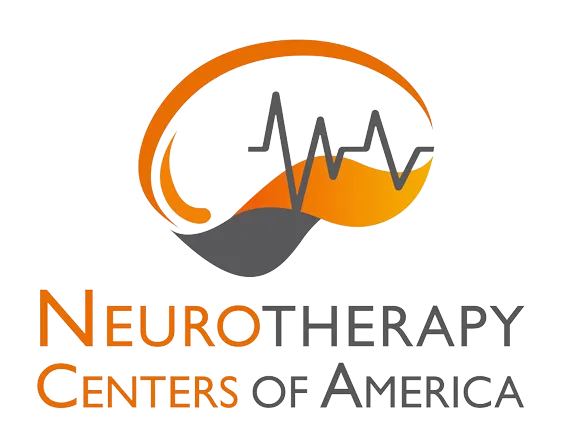
Marijuana and Anxiety
“In strict medical terms marijuana is far safer than many foods we commonly consume. For example, eating 10 raw potatoes can result in a toxic response. By comparison, it is physically impossible to eat enough marijuana to induce death. Marijuana in its natural form is one of the safest therapeutically active substances known to man. By any measure of rational analysis marijuana can be safely used within the supervised routine of medical care.” - Francis Young
Introduction:
Marijuana, also known as cannabis, has gained attention for its potential therapeutic benefits and its intricate relationship with the brain. In this article, we will explore the multifaceted effects of marijuana on the brain, examining both its positive and negative aspects. Additionally, we'll discuss how marijuana may offer benefits for older brains, alongside approaches like neurofeedback therapy and lifestyle changes to address associated challenges.

The Brain's Response to Marijuana
Positive Effects
Pain Relief: Marijuana is renowned for its pain-relieving properties, making it particularly beneficial for conditions such as chronic pain, neuropathy, and multiple sclerosis. The cannabinoids in marijuana interact with the body's endocannabinoid system, providing relief from pain.
Anxiety and Stress Reduction: Some users find relief from anxiety and stress through marijuana use. Cannabidiol (CBD), a non-psychoactive compound, is often associated with these calming effects. However, individual responses vary, with high-THC strains potentially increasing anxiety for some.
Appetite Stimulation: Marijuana is medically employed to stimulate appetite, aiding individuals facing conditions like cancer or HIV/AIDS, which often lead to appetite loss. The well-known "munchies" effect is attributed to THC, marijuana's psychoactive component.
Epilepsy Management: Certain forms of epilepsy, including treatment-resistant conditions like Dravet syndrome, have experienced improved seizure control with CBD-rich marijuana extracts, even leading to some FDA-approved medications.
Negative Effects
Onset of Anxiety: Anxiety is the most common negative effect associated with marijuana use. While some users report reduced anxiety, others may experience heightened anxiety, paranoia, or psychosis. Extended, heavy use can exacerbate mental health conditions, especially in predisposed individuals.
Impaired Cognitive Function: Marijuana use, especially when initiated during adolescence or used heavily, can impair cognitive function, affecting memory, attention, and learning. Prolonged use may lead to lasting cognitive deficits.
Addiction: Although marijuana is less addictive than substances like alcohol or opioids, it can still lead to addiction in some individuals. Withdrawal symptoms, including irritability, insomnia, and loss of appetite, can occur during cessation.
Impaired Motor Skills: Marijuana use can impair motor skills and coordination, increasing the risk of accidents, particularly when driving under the influence.
Impact on Developing Brains: Adolescents are particularly vulnerable to marijuana's effects. Regular use during this critical period of brain development can disrupt normal growth, potentially leading to long-term cognitive deficits.
Benefits for Older Brains
Recent research suggests that marijuana may offer unique benefits for the elderly:
Neuroprotection: Some studies indicate that cannabinoids in marijuana, particularly CBD, may have neuroprotective properties, potentially reducing the risk of age-related cognitive decline and neurodegenerative diseases like Alzheimer's.
Pain Management: Elderly individuals often experience chronic pain, and marijuana's analgesic properties can provide relief without the side effects associated with traditional pain medications.
Improved Sleep: Insomnia is common among the elderly, and certain strains of marijuana can promote better sleep, potentially enhancing overall cognitive function.
Appetite Stimulation: Maintaining a healthy appetite is essential for seniors, and marijuana can help address age-related appetite loss.
Addressing Marijuana-Induced Anxiety
Neurofeedback Therapy
Neurofeedback therapy is an emerging and effective treatment option for anxiety related to marijuana use, and it can benefit people of all ages, including the elderly. This therapy offers real-time information about brain activity and helps individuals learn to regulate it, promoting mental well-being.
Lifestyle Changes
Exercise: Regular physical activity remains vital for seniors, not only for anxiety management but also for overall health.
Dietary Changes: A balanced diet rich in nutrients supports mental and physical well-being. Reducing caffeine and alcohol intake can also help manage anxiety.
Sleep Hygiene: Ensuring a regular sleep schedule and creating a calming bedtime routine can improve sleep quality, reducing anxiety symptoms.
Stop Using Marijuana
Conclusion
The interaction between marijuana and the brain is complex, resulting in a wide range of effects, both positive and negative. While marijuana poses certain risks, it also offers potential benefits for elderly brains, including neuroprotection, pain management, improved sleep, and appetite stimulation. As our understanding of marijuana continues to evolve, it is essential for individuals to explore these holistic approaches, ensuring their mental and physical well-being while using marijuana responsibly.
Virtual Options
Contact us to schedule a FREE consultation and find out how you can qualify for a FREE cognitive/behavioral and metabolic evaluation.
Contact us at https://www.neurotherapycentersusa.com/contact
Visit our website at https://www.neurotherapycentersusa.com
Visit our Facebook Page https://www.facebook.com/neurocentersusa
*The information in this blog is intended for educational purposes only. The opinions expressed in this blog are the opinions of the blog owner, and any other opinions in quotations are the opinion of the sited reference.
"Copyright Disclaimer under Section 107 of the copyright act 1976, allowance is made for fair use for purposes such as criticism, comment, news reporting, scholarship, and research. Fair use is a use permitted by copyright statute that might otherwise be infringing. Non-profit, educational or personal use tips the balance in favour of fair use."
Neurotherapy Centers of America 2023

Marijuana and Anxiety
“In strict medical terms marijuana is far safer than many foods we commonly consume. For example, eating 10 raw potatoes can result in a toxic response. By comparison, it is physically impossible to eat enough marijuana to induce death. Marijuana in its natural form is one of the safest therapeutically active substances known to man. By any measure of rational analysis marijuana can be safely used within the supervised routine of medical care.” - Francis Young
Introduction:
Marijuana, also known as cannabis, has gained attention for its potential therapeutic benefits and its intricate relationship with the brain. In this article, we will explore the multifaceted effects of marijuana on the brain, examining both its positive and negative aspects. Additionally, we'll discuss how marijuana may offer benefits for older brains, alongside approaches like neurofeedback therapy and lifestyle changes to address associated challenges.

The Brain's Response to Marijuana
Positive Effects
Pain Relief: Marijuana is renowned for its pain-relieving properties, making it particularly beneficial for conditions such as chronic pain, neuropathy, and multiple sclerosis. The cannabinoids in marijuana interact with the body's endocannabinoid system, providing relief from pain.
Anxiety and Stress Reduction: Some users find relief from anxiety and stress through marijuana use. Cannabidiol (CBD), a non-psychoactive compound, is often associated with these calming effects. However, individual responses vary, with high-THC strains potentially increasing anxiety for some.
Appetite Stimulation: Marijuana is medically employed to stimulate appetite, aiding individuals facing conditions like cancer or HIV/AIDS, which often lead to appetite loss. The well-known "munchies" effect is attributed to THC, marijuana's psychoactive component.
Epilepsy Management: Certain forms of epilepsy, including treatment-resistant conditions like Dravet syndrome, have experienced improved seizure control with CBD-rich marijuana extracts, even leading to some FDA-approved medications.
Negative Effects
Onset of Anxiety: Anxiety is the most common negative effect associated with marijuana use. While some users report reduced anxiety, others may experience heightened anxiety, paranoia, or psychosis. Extended, heavy use can exacerbate mental health conditions, especially in predisposed individuals.
Impaired Cognitive Function: Marijuana use, especially when initiated during adolescence or used heavily, can impair cognitive function, affecting memory, attention, and learning. Prolonged use may lead to lasting cognitive deficits.
Addiction: Although marijuana is less addictive than substances like alcohol or opioids, it can still lead to addiction in some individuals. Withdrawal symptoms, including irritability, insomnia, and loss of appetite, can occur during cessation.
Impaired Motor Skills: Marijuana use can impair motor skills and coordination, increasing the risk of accidents, particularly when driving under the influence.
Impact on Developing Brains: Adolescents are particularly vulnerable to marijuana's effects. Regular use during this critical period of brain development can disrupt normal growth, potentially leading to long-term cognitive deficits.
Benefits for Older Brains
Recent research suggests that marijuana may offer unique benefits for the elderly:
Neuroprotection: Some studies indicate that cannabinoids in marijuana, particularly CBD, may have neuroprotective properties, potentially reducing the risk of age-related cognitive decline and neurodegenerative diseases like Alzheimer's.
Pain Management: Elderly individuals often experience chronic pain, and marijuana's analgesic properties can provide relief without the side effects associated with traditional pain medications.
Improved Sleep: Insomnia is common among the elderly, and certain strains of marijuana can promote better sleep, potentially enhancing overall cognitive function.
Appetite Stimulation: Maintaining a healthy appetite is essential for seniors, and marijuana can help address age-related appetite loss.
Addressing Marijuana-Induced Anxiety
Neurofeedback Therapy
Neurofeedback therapy is an emerging and effective treatment option for anxiety related to marijuana use, and it can benefit people of all ages, including the elderly. This therapy offers real-time information about brain activity and helps individuals learn to regulate it, promoting mental well-being.
Lifestyle Changes
Exercise: Regular physical activity remains vital for seniors, not only for anxiety management but also for overall health.
Dietary Changes: A balanced diet rich in nutrients supports mental and physical well-being. Reducing caffeine and alcohol intake can also help manage anxiety.
Sleep Hygiene: Ensuring a regular sleep schedule and creating a calming bedtime routine can improve sleep quality, reducing anxiety symptoms.
Stop Using Marijuana
Conclusion
The interaction between marijuana and the brain is complex, resulting in a wide range of effects, both positive and negative. While marijuana poses certain risks, it also offers potential benefits for elderly brains, including neuroprotection, pain management, improved sleep, and appetite stimulation. As our understanding of marijuana continues to evolve, it is essential for individuals to explore these holistic approaches, ensuring their mental and physical well-being while using marijuana responsibly.
Virtual Options
Contact us to schedule a FREE consultation and find out how you can qualify for a FREE cognitive/behavioral and metabolic evaluation.
Contact us at https://www.neurotherapycentersusa.com/contact
Visit our website at https://www.neurotherapycentersusa.com
Visit our Facebook Page https://www.facebook.com/neurocentersusa
*The information in this blog is intended for educational purposes only. The opinions expressed in this blog are the opinions of the blog owner, and any other opinions in quotations are the opinion of the sited reference.
"Copyright Disclaimer under Section 107 of the copyright act 1976, allowance is made for fair use for purposes such as criticism, comment, news reporting, scholarship, and research. Fair use is a use permitted by copyright statute that might otherwise be infringing. Non-profit, educational or personal use tips the balance in favour of fair use."
Neurotherapy Centers of America 2023

Download Our Free eBook Now
©2025 Neurotherapy Centers Of America.
All rights reserved.
*We offer a drug-free, non-invasive approach to alleviate symptoms associated with: ADHD, Autism Spectrum Disorders, Anxiety, Insomnia, Learning Disorders, Memory Loss, Fibromyalgia, Migraine and more..
Our advertising features actual client testimonials. Individual results may vary.
©2025 Neurotherapy Centers Of America. All rights reserved.
*We offer a drug-free, non-invasive approach to alleviate symptoms associated with: ADHD, Autism Spectrum Disorders, Anxiety, Insomnia, Learning Disorders, Memory Loss, Fibromyalgia, Migraine and more..

